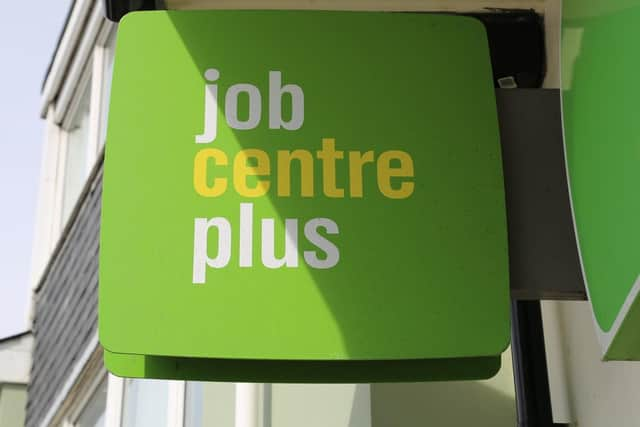This is how many people are claiming Universal Credit in Hastings and Rother
and live on Freeview channel 276
In Hastings, the number of UC claimants stood at 12,740 as of September 9, an increase of 87 from 12,653 as of August 12.
This was equal to a 0.7 per cent increase.
For Rother over the same period, the number stood at 7,168 as of September 9, compared to 7,118 as of August 12, a rise of 50.


This also equated to a 0.7 per cent increase.
Advertisement
Hide AdAdvertisement
Hide AdThe total alternative claimant count, which includes those who are on Jobseeker’s Allowance (JSA), or who are searching for work on Universal Credit, stood at 4,017 in May in Hastings this year, according to latest figures from the DWP.
This was a reduction of 1,160, compared to 12 months previously, the equivalennt of a 22 per cent drop, the DWP said.
However, compared to five years ago, the latest figure represented a 75 per cent rise.
For Rother, the latest figures from the DWP for the total alternative claimant count are from August this year.
Advertisement
Hide AdAdvertisement
Hide AdThe total figure stood at 2,199, a reduction of 846 compared to the same period last year, equivalent to a 28 per cent drop.
But the figure represents a 91 per cent rise compared to five years ago.
For the south east region, the DWP said the number of people employed is at 4.55 million, up 26,000 on the quarter.
The employment rate (aged 16-64) is at 78.2 per cent, higher than the UK average (75.3 per cent), up 0.5 per cent on the quarter.
Advertisement
Hide AdAdvertisement
Hide AdThe DWP said in the south east the number of people unemployed is at 198,000, down 1,000 on the year.
The unemployment rate is also at 4.2 per cent for the south east, lower than the UK average of 4.5 per cent, according to latest figures.
The number of people in workless households has fallen since April-June 2010 by 113,000 in the south east, the DWP said.
Karra Brenchley, partnership manager for Eastbourne, Hastings and Bexhill, said: “A rise in vacancies is welcome news for jobseekers, and we’d encourage employers to work with our network of jobcentres to find the right candidates.
Advertisement
Hide AdAdvertisement
Hide Ad“Employers can also use our Find a Job website to advertise their vacancies to a wide pool of people.
“We have more programmes beginning, such as Restart and JFS to link into the local economy and local labour market. So we are being innovative and we do have older worker champions, help for younger people and the Kickstart programme.
“Sector-Based Work Academy Programme has been fantastic during the pandemic. It provides up to six weeks training, working with an employer, and there is a guaranteed position at the end of that training.
“We have been working with a variety of employers to make sure we get people into growing sectors.
Advertisement
Hide AdAdvertisement
Hide Ad“We had a skills challenge coming into the pandemic and our Plan for Jobs aims to get the right skills for those vacancies.”
Minister for Employment Mims Davies MP said: “With unemployment falling once again, and another record rise in the number of workers on employer payrolls, it’s clear our plan to create, support and protect jobs is working.
“As we enter the next phase of recovery, the £500m boost to our Plan for Jobs will continue to deliver more skills and opportunities for people up and down the country whilst crucially helping to fill vacancies across growing sectors as we push to build back better.”
Minister for Welfare Delivery David Rutley said: “Universal Credit is a safety net for those most in need. With over a million vacancies available, it offers personal employment support through our multi-billion pound Plan for Jobs, encouraging people into work and helping those in employment further their careers and gain greater financial independence.”